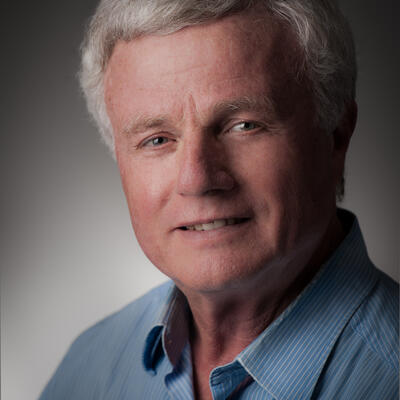
Solar Resource Data Applications to Support Industry
As large-scale solar projects continue to grow in size, requiring ever-increasing levels of financial commitment, the importance of the “bankability” of the solar resource data used to design and operate these systems also increases. Since 2003 a team of international solar resource experts have been involved in an International Energy Agency Solar Heating and Cooling (SHC) Technology Collaboration Program (TCP) task to focus on best practice procedures for applying solar resource data to large-scale projects, and to undertake benchmarking studies to better understand the quality of data that is available to support the solar industry. This task will now continue under the IEA Photovoltaic Power Systems (PVPS) TCP under the leadership of Jan Remund of Meteotest (Switzerland), who will be our first speaker in this webinar. Jan will summarize some of the key outcomes of the work undertaken in the task over the past decade and describe the key activities to be undertaken in this international collaboration going forward. Following this overview, Jesus Polo of Ciemat (Spain) will discuss one of the key outcomes of the task, which is a review of methodologies to merge high quality, short term ground measurements with long term solar resource estimates derived from weather satellite observations to produce “bankable” solar resource data sets. Following Jesus, Skip Dise of Clean Power Research (USA) will give some examples of how quality ground and satellite data are being used in practice to add value to solar energy projects. Following these presentations there will be time for the presenters to respond to questions and comments submitted by the webinar presenters.
Panelist speakers and topics:
- Jan Remund, Meteotest: Overview of the new IEA PVPS Task 16 - Solar resource for high penetration and large scale applications. The approach and goals of the new Task will be shown aside as short overview of the results of the preceding solar resource Task 46.
- Jesus Polo: "Data Adaptation Techniques for Improving Data Bankability”
- Skip Dise, Clean Power Research: “How Quality Satellite and Ground Data Improve Solar Project Value”
Webinar presentations
Speakers
Jan Remund

Jan Remund is working at the private company Meteotest in Bern Switzerland since 1993. He is head of solar energy & climatology unit and holds a master degree in nature science (geography) from the Federal Institute of Technology Zurich.
He’s a specialist in solar resource assessments. His main project is the global climatological database Meteonorm . Jan’s main scientific international projects were IEA SHC Task 36/46 (2005-2016), IEA PVPS Task 14 (2010-2014) and EU FP7 DNICast (2014-2017). In the IEA solar heating and cooling task 46 (“Solar Resource Assessment and Forecasting”) he worked mainly at solar radiation forecast. In the IEA PVPS Task 14 he contributed to three reports about solar forecasts, solar variability and grid integration. He will lead the new IEA PVPS Task 16 starting in July 2017. Jan Remund worked also in the field of grid integration of renewables including the calculation of 100% renewables scenarios in Switzerland and modelled effects of climate change for forests and cities.
Jesús Polo

Jesús Polo is a senior researcher at PV laboratory in CIEMAT (Center of research in Energy, Environment and Technology). His main interests are focused on solar resource assessment, solar radiation modelling and solar systems (PV and CSP) modelling. He's been working in radiative transfer, in atmospheric physics and optics, in remote sensing and satellite-derived retrievals for energy meteorology and in performance studies of PV and CSP plants. He is author of over 40 papers in journals and dozens of conference proceedings in solar energy topics. He’s been actively collaborating in the tasks 36 and 46 of IEA SHC focused on solar resource knowledge and is leading an activity on site adaptation of solar radiation datasets within the Taks 16 of IEA PVPS
Skip Dise

Skip Dise is a Product Manager at Clean Power Research. In his role as Product Manager, Skip works closely with solar developers, utilities and energy agencies to integrate SolarAnywhere software tools into their planning and operating processes. Skip is also responsible for researching product improvements to SolarAnywhere, such as developing methods of integrating solar data into asset management tools. Skip has authored and contributed to conference papers on solar resource and forecasts and also composed the whitepaper “Behind-the-Meter Intelligence for Distributed PV Grid Integration”. Prior to joining CPR, Skip worked with a clean tech start up, Soane Energy developing environmental remediation technologies for the energy industry. Skip holds an B.S. in Chemical Engineering from the Massachusetts Institute of Technology (MIT), and an M.S. in Mechanical Engineering from the University of California, San Diego.
Dr. David Renné

Dr. David Renné President of the International Solar Energy Society since 2010 and Associate Editor of the Solar Energy Journal in the field of solar resource assessment, Dr. Renné is also the Operating Agent of International Energy Agency Solar Heating and Cooling Programme Task 46 titled, “Solar Resource Assessment and Forecasting.” From 1991-2012, Dr. Renné developed and managed programs on renewable energy resource assessment and analysis, and the integration of resource data into GIS at the National Renewable Energy Laboratory (NREL). In his retirement, he holds an Emeritus position at NREL and Dave Renné Renewables provides support to both the public and private sector in planning and developing domestic and international renewable energy programs.


